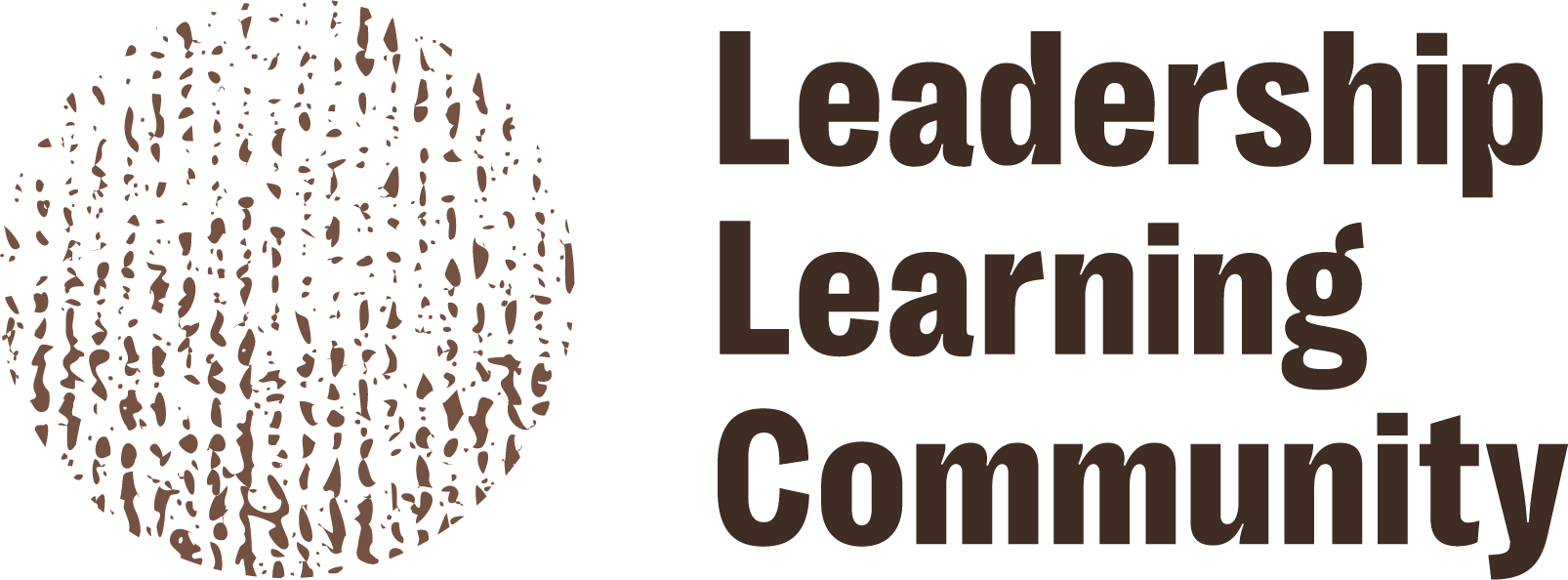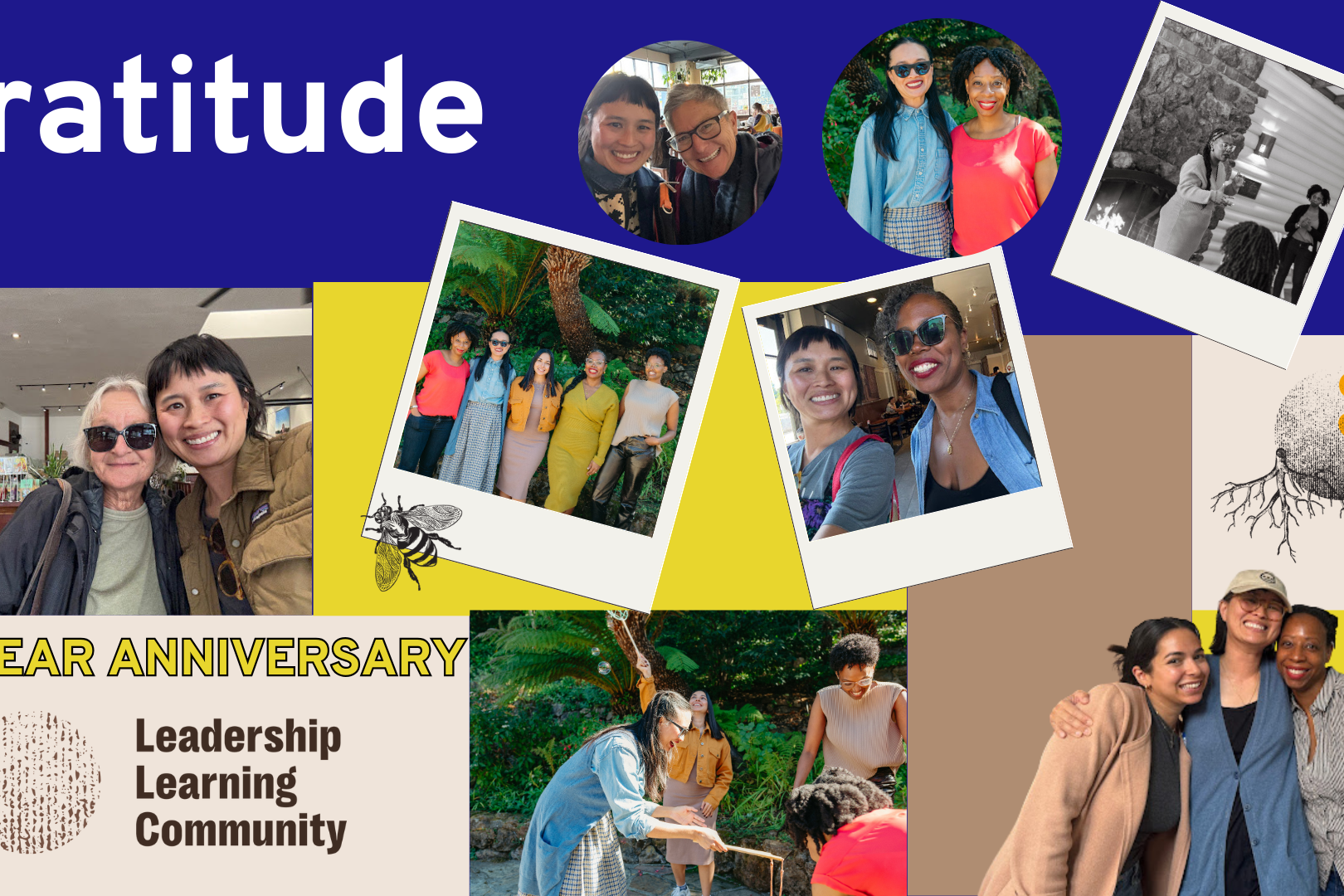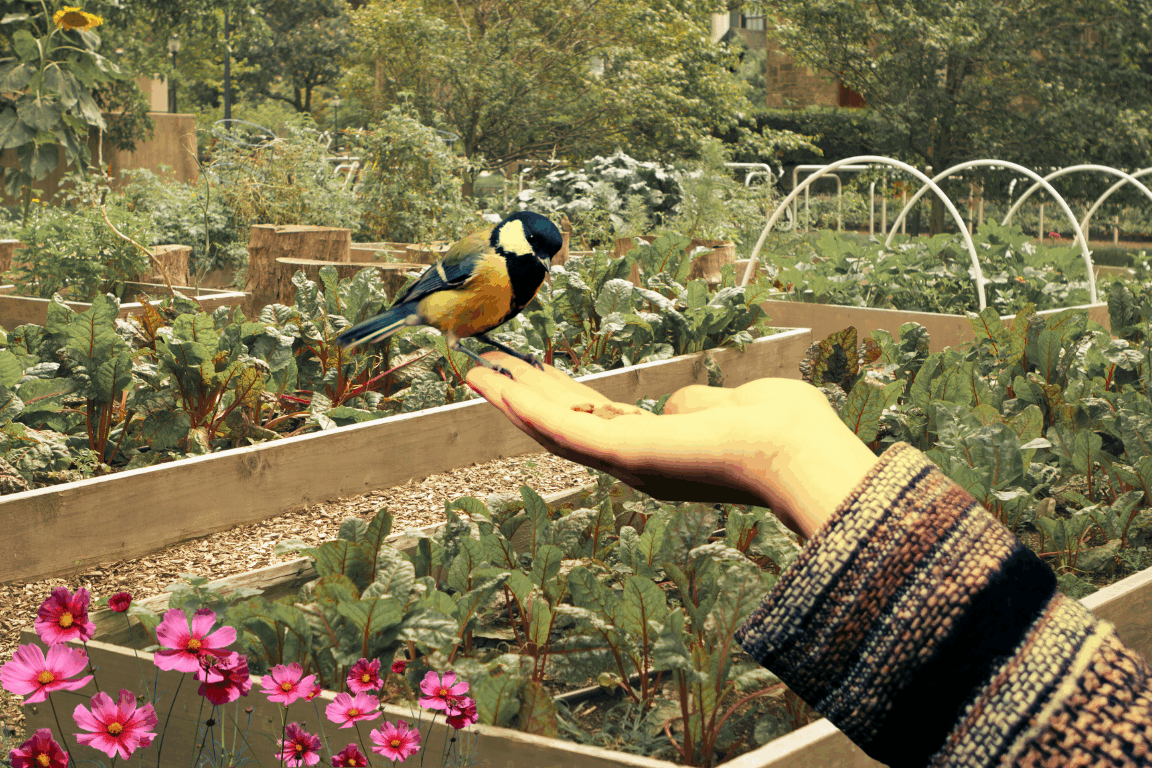This is a collaborative knowledge product of CompassPoint, Proinspire, and Leadership Learning Community
Introduction: In 2025, the social good sector stands at a critical juncture. This blog brings together insights from three organizations: ProInspire, Leadership Learning Community (LLC), and CompassPoint, each of which works at the intersection of leadership in nonprofits, capacity building, and philanthropy. We share a commitment to racial equity and justice, while shifting common leadership practices toward a human-centered approach. This involves embracing concepts like love, connection, and relationship as integral to liberatory practice, representing a move toward leadership with wholeness and away from oppressive practices. These values and practices will be rigorously tested in these times, where many of the communities we serve are under direct attack, and organizations doing the work are also facing an existential threat with funder retraction, the impact of rapidly changing orders, bills, laws, and lawsuits. Given this shared orientation, we are all deeply aware of the varied impacts of leadership on individuals in these tumultuous times, including the recent “awakening” towards racial equity, followed by the abrupt regression, prompting us to offer our perspectives on leadership in these times.
ProInspire: At ProInspire, we work at the intersection of racial equity and leadership development. We support nonprofits and foundations—especially BIPOC-led organizations—through leadership development and organizational culture capacity building. Our impact is defined by what it looks like for Black and BIPOC leaders to thrive: healthy organizations, sustainable workplaces, and cultures that affirm people’s full humanity. As an intermediary, we connect partners across the social sector ecosystem to foster collaboration and equitable outcomes. Our partners span public health, education, environmental justice, arts, and economic opportunity. While we work across the sector, we prioritize organizations that are rooted in and reflective of the BIPOC communities they serve.
Leadership Learning Community (LLC): LLC focuses on inviting leaders, including those from historically excluded communities like gender expansive Black, Indigenous, immigrant, people of color, LGBTQIA+, and people with disabilities, to live out the compelling vision of collective liberation – one which seeks power, joy, and thriving for all people. Our work includes holding space for convening, play, practice, research, and learnings outside of the dominant culture structures and systems. We work with social good leaders, philanthropy, and organizations to expand on love-centered liberatory leadership work.
CompassPoint: CompassPoint is a capacity-building organization committed to cultivating transformational leaders with a pro-Black focus, developing the operations and infrastructure of progressive nonprofits and movement organizations working towards liberation. Our programs spark deep reflection, community, and power-building among nonprofit workers and changemakers who are reimagining leadership, shifting power, and working toward a more just and equitable world. Our approach to the work is rooted in radical joy, care, and creativity as we do practical things in radical ways to advance the work of justice and equity.
Insights: Looking back five years to the start of the COVID-19 pandemic, the murder of George Floyd, and the subsequent racial uprising in the United States in 2020, we offer a retrospective. During this period, leaders navigated a fundamentally altered world, dealing with the technical, financial, policy, and work-life balance consequences of shifting to remote work. Simultaneously, some progressive and reputable organizations experienced public fallouts, and oversimplified labels such as “toxic” or “problematic” marked the sector’s inability to endure those times. There was a strong demand for wellbeing, understanding racial equity in leadership, and dealing with the context and complexity of place-based work while working remotely.
Many nonprofit organizations experienced a period of racialized “awakening” with increased resourcing and organizational commitments, but also encountered challenges in meeting those demands. During this period, BIPOC leaders were asked to educate, lead, and assess harm inside and outside their organizations. Many organizations developed departments that focus on promoting and implementing diversity, equity, and inclusion initiatives. Many enlisted the support of capacity builders, healers, and other practitioners to support the cultivation of anti-racist organizational systems and cultural practices to increase representation and amplify the voices and perspectives of marginalized people.
The “setup” was within the structure. DEI departments were often stewarded by BIPOC staff and offered as an additional project on top of their regular workload and/or isolated into a committee or department. This left little to no capacity to effectively drive change within organizations. Folks operated with limited resources, scarce time, and minimal funding, and they were at the precipice of burnout. They were expected to shift conditions that had existed for several years and even decades.
There was a call to rethink and redesign systems in new and innovative ways: using liberatory tools to create liberating organizations, uprooting oppressive systems (such as hiring and promotion processes that prevent Black and Latina women from holding formal leadership roles), and replacing them with consistent, values-aligned, and transparent practices that leveled the playing field and visibilized traditionally devalued labor often performed by individuals with marginalized identities.
CompassPoint: Leaders in the nonprofit sector were processing intense feelings of confusion, grief, and burnout. This was a cry heard and felt across the entire sector, regardless of experience, positionality, or identity. We landed in a world in which we had never been before: moving out of spaces where we worked alongside each other to social distancing in our homes; inviting collaborators into our personal spaces through virtual meetings; squeezing in household responsibilities; supporting our babies and other loved ones moving through their new normal. As an organization, we were called to launch online learning spaces exclusively for Black and IPOC leaders: continuing our Self-Care for Black Women in Leadership series, and offering BIPOC-only versions of our workshops on supervision, coaching, conflict resolution, and facilitation skills. In recognition of building cross-racial solidarity, we also rolled out a new supervision workshop for white accomplices to reflect on and practice skills to interrupt fragility, defensiveness, paternalism, and other habits that get in the way of sharing power.
ProInspire: We saw growing awareness that place and local context matter. While the pandemic was global, our leadership work remained U.S.-centric. Yet even within that lens, geography shaped the outcomes and opportunities people experienced. More of the sector began recognizing the connection between place-based work and systems change—especially in under-resourced regions like the South, Midwest, and Southwest. Moreover, leaders from everywhere, and especially Black women, lifted up the importance of rest, mental health, and sustainable workloads. The shift from surviving to thriving became a critical reframe. We also witnessed an increase in leadership transitions, particularly women of color stepping into senior roles—often without the support, community, or infrastructure they needed to succeed.
Leadership Learning Community: Leaders repeatedly expressed the need for secure and dependable funding. They also needed clear, understandable, and actionable information to use for decision making, e.g, safety protocols, PPP forgivable loans, etc. Many of the leaders in LLC’s ecosystem were new leaders and often new leaders of color who came to their positions near or around the advent of the COVID pandemic. All of the leaders communicated a sense of exhaustion and a need for rest, community, and support. LLC’s response in this uncertain time period was to form the Liberatory Leadership Partnership, offer resources for experimentation via small flexible regrants and collaborative learning spaces, and create several drop-in virtual communities.
Now, in 2025, we are again in crisis mode. This time, due to a pointed, concerted, and politically motivated attack on the very anti-discrimination civil rights and human rights law that racial equity and justice work builds upon. In other words, Black, Indigenous, people of color, immigrants, refugees, climate researchers, healthcare professionals, LGBTQIA+ people, and more are being stripped of their rights systematically, while many organizations focused on work in these communities are mired in executive orders and lawsuits, or the threat of such actions. All while nonprofits across the board are (and have been) experiencing extreme funding instability. We have seen divestment in race equity work in a few short years following its heyday in 2020, and this year, the recent federal government funding shifts, as well as a looming economic recession, are external conditions that set the stage for what is to come. The sector is now marked by increasing leadership and organizational transitions, burnout, and extreme funding instability, likely leading to a shrinking sector.
Leadership Learning Community: LLC is simultaneously scenario planning for what the field is needing, and looking at the possibility of restructuring and downsizing so we can endure these transitions before we build up again. At the field level, this restructuring is happening across the board in the nonprofit sector, as confirmed by a high percentage of leaders and organizations we work with. We anticipate there will be fewer leaders of color and first-generation leaders in the field after 2025. There will also be fewer shared leadership and distributed leadership models during this deep financial crisis and intentional reduction of the social good sector. Our goal is to push forward the lessons of liberatory leadership and continue to invite leaders to seek power, joy, and thriving for all people, even as the formations and structures we work and collaborate in contract and shift in this unprecedented political terrain.
What lessons from the past five years will our sector take with us? What will disappear? Our goal is to preserve the lessons of liberatory leadership and continue to invite leaders to seek power, joy, and thriving for all people.
CompassPoint: The rise of fascism is threatening to unravel the hard-won efforts of the past few decades, and funders are backtracking on grant-making strategies that support the advancement of pro-Black, -trans, -working-class, and other movements toward liberation. To commit to the work ahead, we need to be strategic, collaborative, and creative, both in our resistance and in our persistence to win and create the world we dream of. We must bring into the fold everyone who has the courage and the willingness to take on the risk and responsibility of creating change in these times of organizational, movement, and societal churn, uncertainty, and possibility. Part of the call of these times is to shift our understanding and analysis of leadership away from individual privileges and towards our collective responsibility and the essential work to shift power and build alternative systems and practices together.
ProInspire: The scarcity mindset stifles creativity and undermines our ability to care for our people. The next chapter requires clarity, courage, and care. We must continue to support the sector, building a stronger social sector infrastructure to support leaders and organizations with embedding liberatory practices in their leadership and organization. We remain steadfast to standing alongside leaders and organizations that are committed to the work of racial equity. This is a moment to hold both urgency and vision—to resist retreating, and instead, move forward together. Because a thriving social sector isn’t just about better programs. It’s about people—and creating the conditions for them to thrive.
What the field and leaders need now:
Our collective experience with leaders over the last five years has clarified that equity conversations are no longer niche, and the need isn’t just for BIPOC leaders to have a seat at the table. We need authentic and explicit organizational cultures that create space for trust-building and more mechanisms for accountability that are human-centered, values-aligned, and outcomes-driven. We need to build different leadership models, more robust leadership teams within our organizations, and improved governance structures. We need a liberatory approach to decision-making and space to lead in ways that draw out our innate abilities. And, we need multi-year, unrestricted funding so that we can focus on the results of our work and caring for our people.
Many leaders have been navigating prolonged stress and overwhelm for the last five (or more) years. We need to address burnout within our organizations by prioritizing healing, connection, and peer support and building explicit systems and cultural practices that promote self- and community care, such as including wellness as part of benefit packages, budgeting for sabbaticals, and providing physical and virtual workplaces that incorporate mindfulness.
We’ve improved our ability to pause, reflect, and be strategic in how we respond. Now, we need to create space to claim our power and build relationships in multiple ways. In adopting new leadership concepts that center racial justice and liberatory values, we call on ourselves to be in practice within our own spaces. Can we set up more – and different – structures that support the values of shared and distributed leadership? What can we glean from networked leadership and cooperatives, to amplify impact and share resources? Let’s lean into interdependence, to turn to, rather than against, each other by building deep and authentic relationships.

Related Posts
December 15, 2025
LLC’s 2025 Celebrations
July 21, 2025







